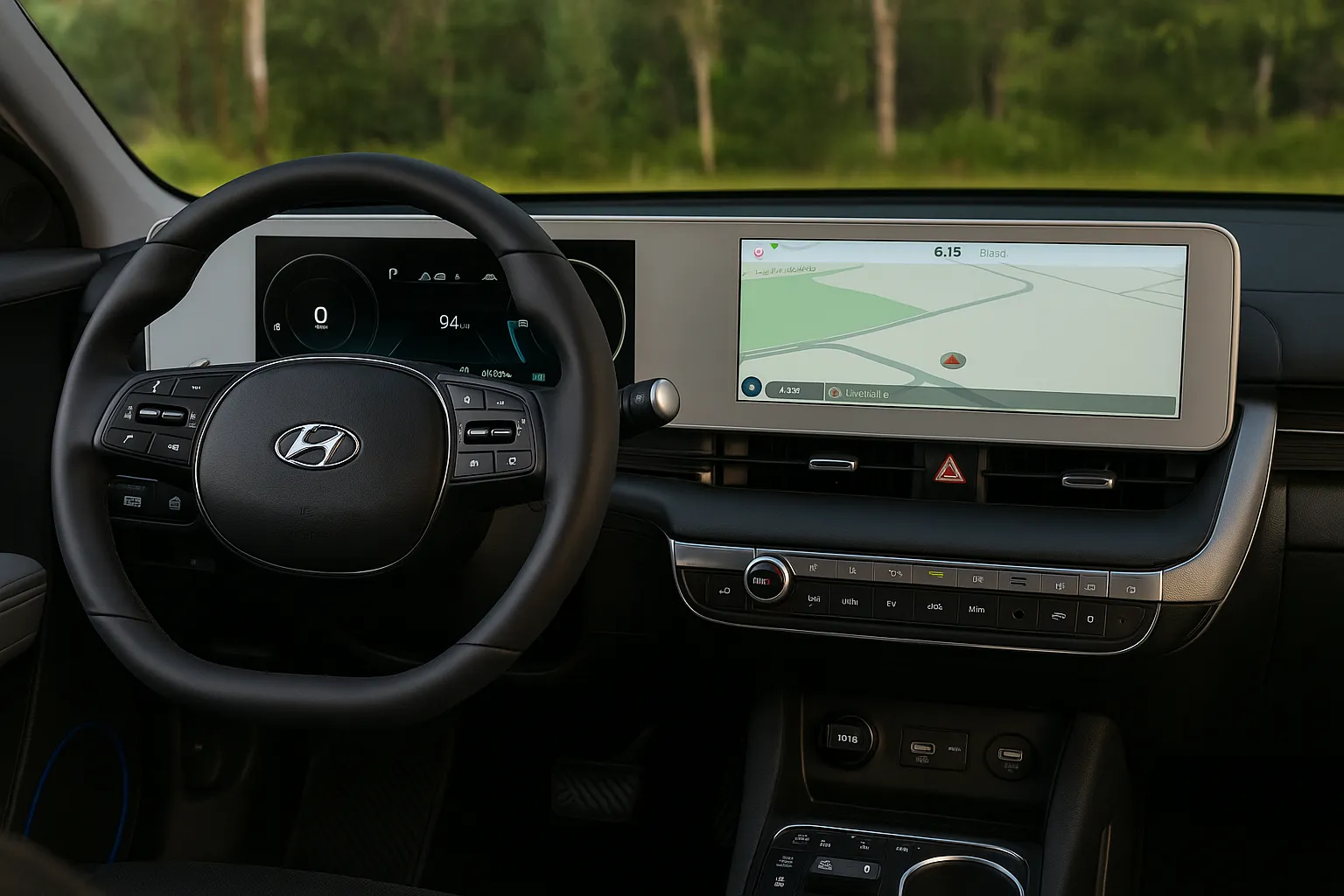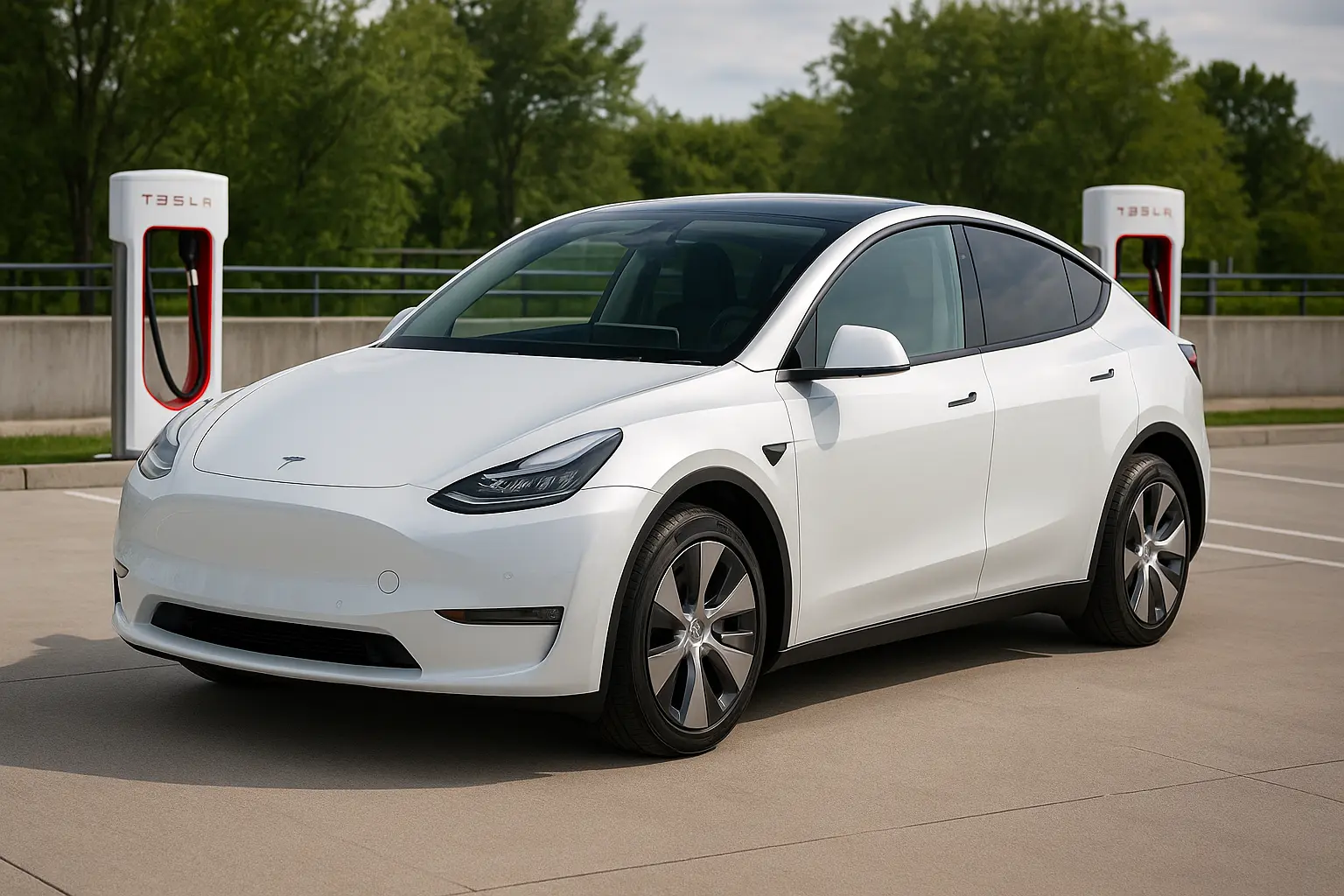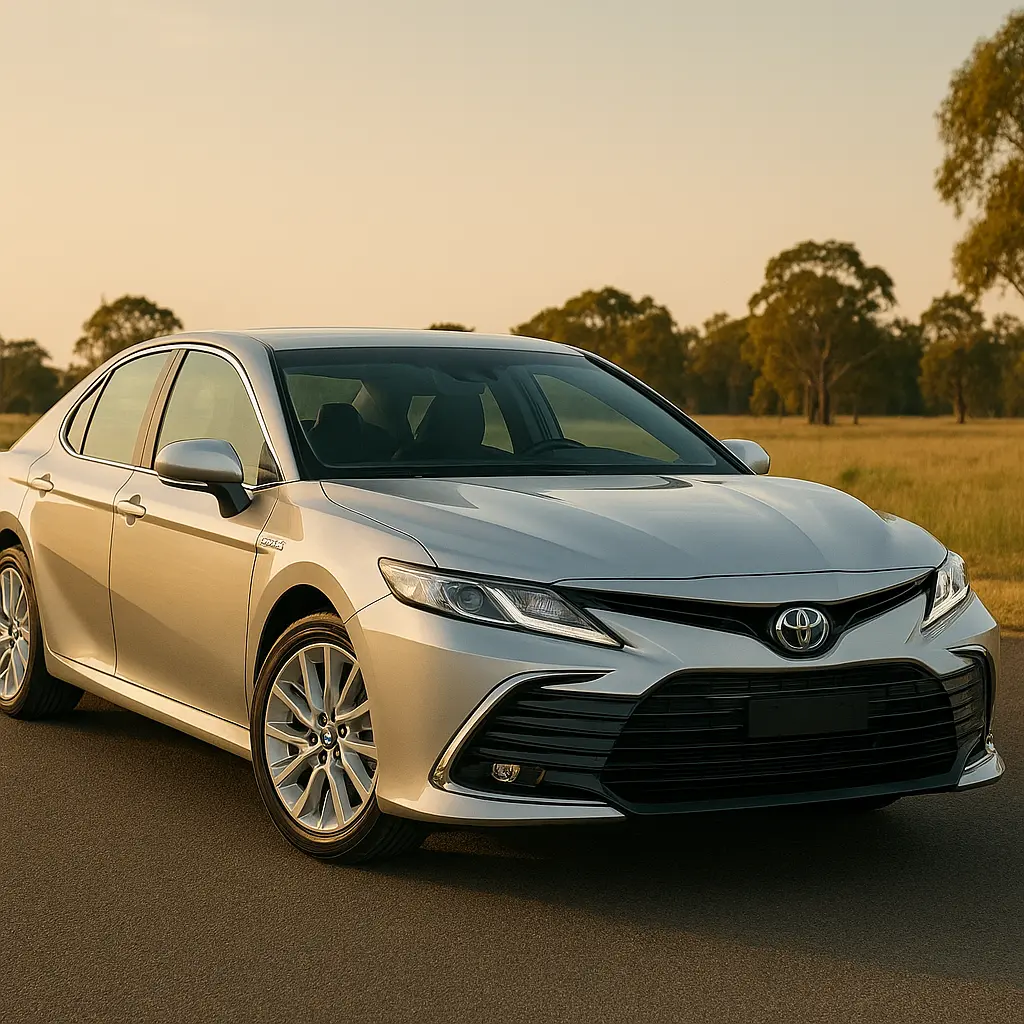Top Cars with Fully Digital Instrument Clusters and Displays
From once being exclusive to luxury flagships, fully digital instrument clusters and infotainment displays are now found across all segments in 2025 – from hatchbacks to utes. In Australia, buyers increasingly seek cars not just for performance or fuel efficiency, but for a connected, modern driving experience. Here's your complete guide to the best cars with digital displays and clusters on sale in Australia today.
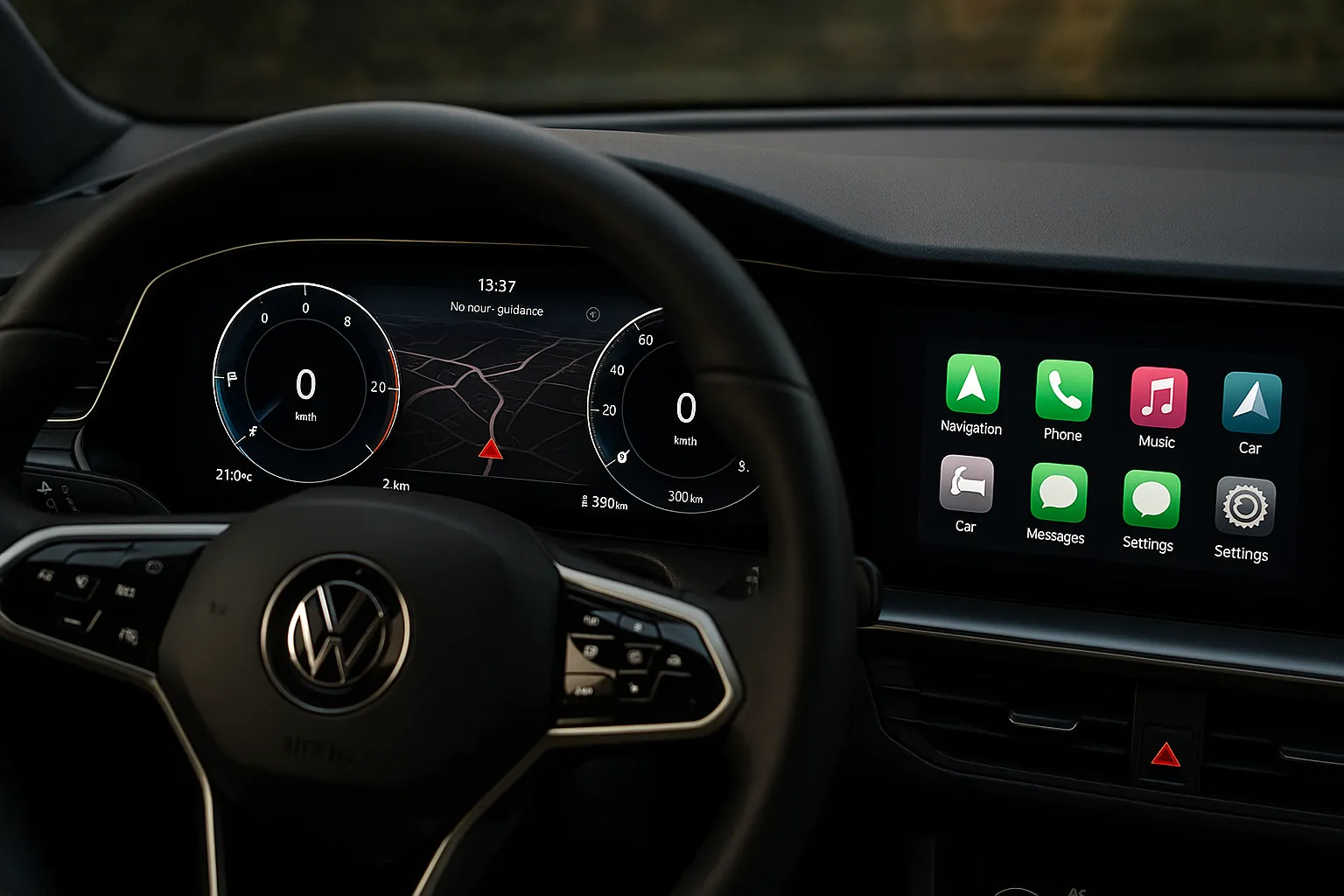
Why Digital Instrument Clusters Matter in 2025
A digital instrument cluster replaces the traditional analogue dials with a screen – usually LCD or OLED – that can display speed, tachometer, maps, safety warnings, and even media or vehicle status updates. Here’s why Aussie buyers care:
- Customisation – Choose how your speedo looks, what data is shown.
- Navigation integration – Full-screen maps between the dials.
- Safety – Better visual alerts and driving aids.
- Luxury look and feel – Brings that high-end aesthetic.
- Tech sync – Works with Apple CarPlay, Android Auto, and voice assistants.
Top Cars with Fully Digital Clusters in Australia
1. Hyundai Ioniq 5
Segment: Electric SUV
Display: 12.3-inch instrument + 12.3-inch infotainment
Price from: ~$72,000 drive-away
Hyundai’s retro-futuristic Ioniq 5 comes with a twin-screen setup that spans the dashboard. The digital instrument cluster is sharp, fast, and features navigation, range data, and smart energy monitoring. The interface is one of the most intuitive among EVs.
Highlights:
- AR Head-Up Display
- Eco drive analysis
- Seamless EV integration
2. BMW iX1 / X1
Segment: Luxury SUV
Display: BMW Curved Display – 10.25" cluster + 10.7" infotainment
Price from: ~$60,000 (X1) / ~$85,000 (iX1 EV)
The BMW iX1 and X1 offer one of the best digital cockpit layouts in their class. Crisp graphics, advanced animations, and custom drive modes redefine premium feel.
Highlights:
- BMW iDrive 9
- Full-screen navigation
- Voice-activated features
3. Volkswagen Golf Mk8
Segment: Hatchback
Display: 10.25-inch Digital Cockpit Pro
Price from: ~$39,000
VW was among the first to offer digital clusters in non-luxury cars. The Mk8 Golf takes this further with a slick, minimal dashboard and configurable display – showing everything from performance data to media and phone controls.
Highlights:
- Touch-capacitive controls
- Wireless Apple CarPlay
- Multi-view instrument layouts
4. Tesla Model 3 Highland (2025)
Segment: Electric Sedan
Display: 15.4-inch central display (no instrument cluster)
Price from: ~$61,900
While Tesla doesn’t have a traditional cluster, the central display in the Model 3 controls everything. The 2025 update brings faster UI, clearer graphics, and more personalisation.
Highlights:
- Rear screen for passengers (new)
- Speed shown on left of main display
- OTA updates for new features
5. Mercedes-Benz EQB
Segment: Electric Compact SUV
Display: MBUX – 10.25-inch instrument + 10.25-inch infotainment
Price from: ~$92,000
The EQB inherits Mercedes’ impressive digital MBUX system with stunning animations and sharp responsiveness. The screens feel luxury, even though this is a compact SUV.
Highlights:
- Augmented Reality navigation
- “Hey Mercedes” voice assistant
- Advanced EV info integration
6. Peugeot 3008 & 5008 (i-Cockpit)
Segment: Mid-size SUV
Display: 12.3-inch 3D digital cluster
Price from: ~$50,000 (3008)
Peugeot does things differently with its i-Cockpit layout. The compact steering wheel sits below the raised digital cluster – offering a 3D-like floating effect. Quirky but engaging.
Highlights:
- 3D layered cluster
- Configurable modes (Navigation, Dials, Minimal)
- Strong Euro design cues
7. Kia EV6
Segment: Electric Crossover
Display: Dual 12.3-inch panoramic displays
Price from: ~$72,590
Kia’s EV6 joins the modern EV revolution with a clean, wraparound screen setup. The digital instrument cluster is crisp and minimal, with easy access to charging stats and drive modes.
Highlights:
- Sleek curvature across dash
- Integrated HUD (optional)
- Drive mode and terrain feedback
8. Ford Everest / Ranger (2025)
Segment: SUV / Ute
Display: 12.4-inch digital cluster + 12-inch infotainment
Price from: ~$63,000
Ford's tech-forward design makes the Everest and Ranger standouts in the ute and adventure SUV category. Off-road data, towing info, and 4x4 status are integrated into the cluster.
Highlights:
- Terrain management system visuals
- Trail camera display
- Clear night mode readability
9. Mazda CX-90
Segment: Luxury SUV
Display: 12.3-inch digital cluster + 12.3-inch infotainment
Price from: ~$74,385
Mazda enters the luxury league with its flagship CX-90, blending elegant analog-style graphics with digital convenience. Classy, sharp, and beautifully designed.
Highlights:
- Traffic sign recognition
- Configurable themes
- Subtle animations and simplicity
10. Audi Q4 e-tron
Segment: Luxury EV SUV
Display: 10.25-inch Virtual Cockpit + 11.6-inch MMI display
Price from: ~$88,300
Audi’s Virtual Cockpit is legendary, and the Q4 e-tron evolves it further. With Google Maps-style navigation in the driver’s display, it offers immersive, safe driving experience.
Highlights:
- Multi-layer 3D effect
- Excellent HUD integration
- Immersive EV-specific modes
Honorable Mentions
Lexus NX and RX
- Sleek dual displays with clear instrument cluster and heads-up display options.
MG4 Electric
- Affordable EV with a decent 7-inch cluster + 10.25-inch infotainment for its price range.
Subaru Outback Touring XT
- Combines analog gauges with a 12.3-inch multifunction digital panel. A hybrid approach that works.
What Makes a Digital Cockpit Great?
Not all screens are created equal. Here’s what you should look for in a car with a digital cluster:
| Feature | Why It Matters |
|---|---|
| Resolution | Sharp graphics reduce strain and improve readability |
| Responsiveness | Lag-free performance ensures safety and convenience |
| Configurability | Drivers should be able to personalise layouts |
| Integration | Maps, media, driver assist tech should be visible |
| Visibility | Sunlight-readable displays are a must in Australia |
Pros and Cons of Fully Digital Clusters
✅ Pros:
- Modern aesthetics
- Advanced integration with ADAS & maps
- Customisable to individual driver preferences
- Easier software updates
❌ Cons:
- Glare or sunlight washout on some models
- Can be overwhelming for traditional users
- More expensive to replace than analog dials
Digital Dash Trends to Watch in 2025
- Augmented Reality HUDs – Common in luxury vehicles, now coming to mid-range.
- OTA Interface Updates – Tesla, Hyundai, and Kia pushing continuous upgrades.
- AI Integration – Predictive display elements adapting to driver habits.
- Minimalist Interiors – Central screens replacing traditional clusters altogether.
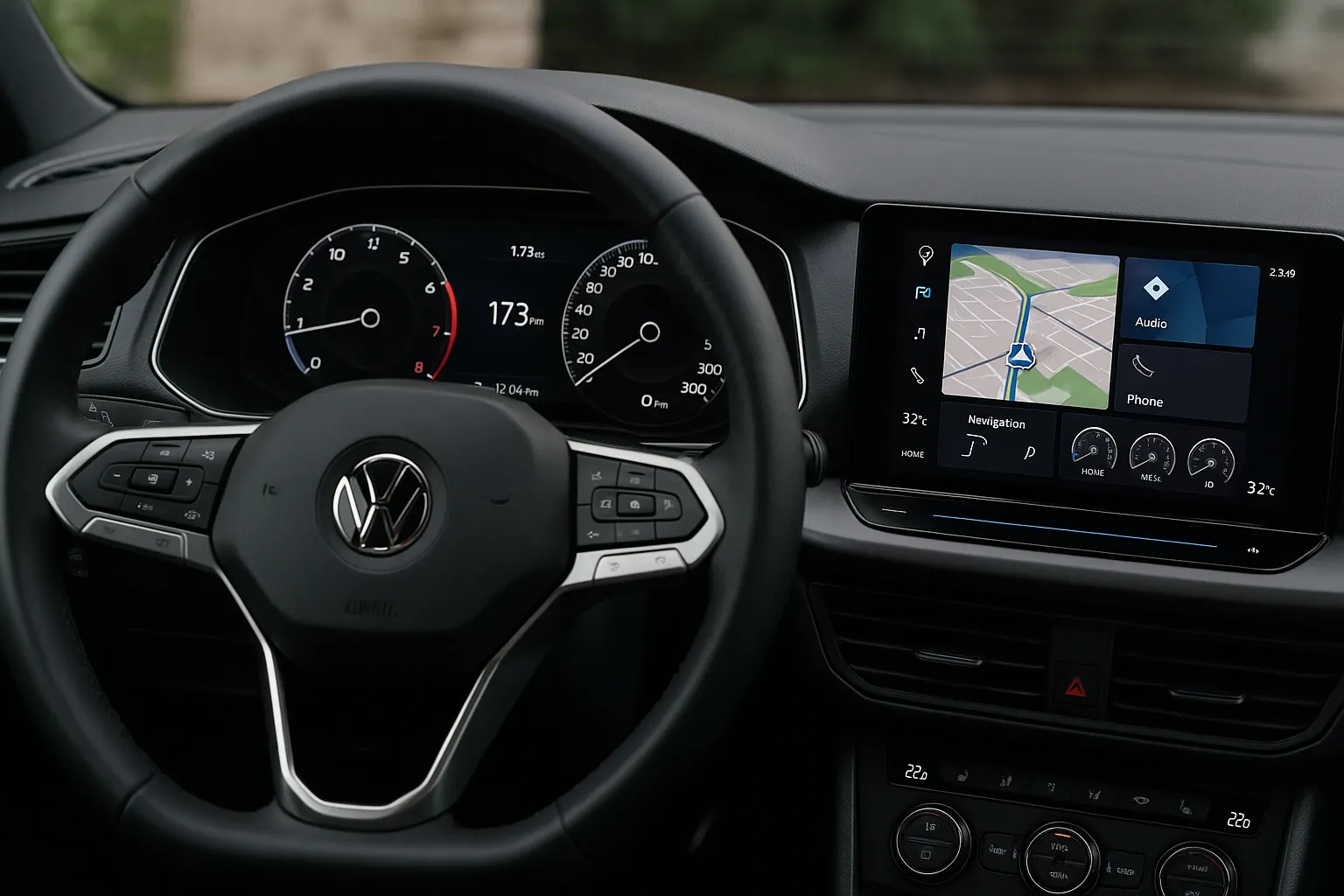
Final Thoughts – Are Digital Clusters Worth It?
For Australian buyers in 2025, a digital instrument cluster is more than just tech – it’s a lifestyle feature. Whether you're buying an EV, luxury SUV, or even a hatchback, digital displays offer a glimpse into the future of driving.
They enhance your daily experience with navigation clarity, adaptive info, and a sleek interface. If you value smart tech, safety integration, and modern convenience, go digital.
Leave a comment
Your email address will not be published. Required fields are marked *


